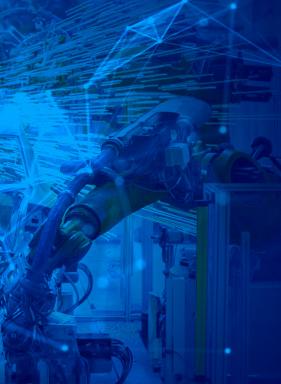GENERAL SITUATION IN MEXICO





NEARSHORING HAS BROUGHT MORE THAN $19 BILLION DOLLARS OF INVESTMENT TO MEXICO IN THE LAST YEAR.
Nearshoring is possibly the buzzword in the business world in Mexico, however, more than a fashion is a reality, since between February last year and so far in January 2023 detected 105 announcements as a result of this phenomenon, which represented an investment of $19,109 million dollars, according to Credit Suisse.

The financial institution indicated that in the last two months, they tracked 5 factory installations, for a total of 1,100 million dollars, of which the majority came from the automotive sector which represented 78% of the amount disclosed, but there are also other sectors that are expanding operations such as electronics, which accounted for 13%.
According to the Swiss investment bank, the most relevant announcement was BMW’s electric vehicle plant, announced this January for 850 million dollars, which will be located in San Luis Potosi. The Mexican Association of Private Industrial Parks (AMPIP) indicated that the country has attracted 75 to 100 Canadian, Chinese, Korean, and Japanese companies that have implemented or expanded operations.
However, not all regions of the country have benefited from nearshoring, according to CBRE data, the Monterrey area concentrates 50% of the investments, followed by Saltillo with 11%, Merida with 6%, the capital of Chihuahua and Ciudad Juarez with 7%, Mexico City with 7%, San Luis Potosi with 6%, Guanajuato with 3%.
For Banorte’s Deputy General Director of Economic and Financial Analysis, Alejandro Padilla, the country is very well positioned to take advantage of these opportunities, since it has 12 free trade agreements with 46 countries.
In this sense, he recalled that estimates by the Inter-American Development Bank (IDB) indicate that nearshoring would add 35,278.2 million dollars to Mexican exports, an increase of between 7 or 8% to the current ones; however, he highlighted that they can also boost the development of industrial clusters in the national territory.
Padilla considered that Mexico has many opportunities to attract investments in the automotive sector, agribusiness, pharmaceuticals, transportation, storage, logistics, computer equipment and cables, electronics, and household appliances, as well as software development, industrial design, and human capital.
In turn, Mario Hernandez, KPMG’s Lead Partner of the IMMEX segment in Mexico, explained that in order to have alternatives that support the supply chain, it is essential to implement manufacturing plants in Mexico that are located in other continents under the concept of nearshoring.

The nationalization of lithium exploitation after last April’s reform to the Mining Law will not be an obstacle for U.S. and Canadian companies to invest in this sector.
Private investment will be possible as long as it is in association with the Mexican State, whose vehicle for such purpose will be the public company LitioMx -which will have the majority shareholding.
Access to the business will be exclusively for national investors, or from the United States and Canada, Mexico’s partners in the USMCA.
This was stated in mid-November by President Andres Manuel Lopez Obrador, when he gave details of the so-called Sonora Plan, which is the strategy to be adopted by the Mexican government to exploit the mineral.
In addition to lithium exploitation, Plan Sonora includes the construction of solar energy plants, infrastructure, and logistics, in order to cover the entire mineral value chain.

The intention would be to tie the initiative with the plan promoted by the United States government to develop the entire electromobility value chain in North America, for which Washington approved last year the so-called CHIPS Act, which provides for the granting of up to 50 billion dollars in incentives to U.S. companies.
According to Lopez Obrador, a pillar of financing for Plan Sonora would be precisely the U.S. government, which would be willing to grant credits.
“In the case of the electricity industry, they are going to help, they decided that there will be investments, that there will be credits at low rates because it is about producing clean energy, it is very important to us”, said Lopez Obrador in his conference last December 20.

January 18-24, 2023
• Pre-oil production: Mexican President Lopez Obrador has announced that the state-owned company Pemex produces 97% of Mexico’s crude oil and has shown growth in oil production for the fourth consecutive year. Based on this, it is intended to produce more domestic gasoline and stop importing fuels. It is also mentioned that the participation of the private and moderate social sector is required, and it is mentioned that contracts with private companies have not been canceled. It is planned to continue investing in the rehabilitation of refineries and to build new plants to transform fuel oil into gasoline, with the objective of producing 800 thousand barrels of fuel per month, which is what is currently demanded. In addition, the use of renewable energies will be promoted and provided in the future.
• Lithium: President Lopez Obrador announces a trip to Sonora to hand over the concession of a lithium mine to the nationally-owned company LitioMX. It is also mentioned that an agreement is being sought with the company that was carrying out an exploratory process and to avoid a legal process. The objective of this plan is to manufacture batteries for electric cars and to replicate Puerto Penasco throughout Sonora in order to have clean energy throughout the state.
• Mayan Train: Javier May Rodriguez, head of Fonatur, informed that a 234-kilometer railroad section is being built in the state of Campeche, with 2 stations in Edzna and Campeche and 3 stops. More than 423 thousand jobs, 50 new homes and 140 social works have been generated, and the inauguration is expected in December 2023. Antonio Gomez, Director of Grupo Carso, has indicated that construction has generated 41,279 jobs, 97% of which were hired and trained in the region. Mayte Ramos, representative of Alstom, mentioned that the trains are being built with 70% national content and will operate in dual mode (diesel-electric). Diego Prieto, Director of INAH, mentioned that the project demonstrates that technological progress is possible while preserving archeology. Maria Luisa Albores Gonzalez, head of SEMARNAT, mentions that the project has had a positive environmental impact resolution since November 2020. The Governor of Campeche, Layda Sansores, mentions that the Mayan train will connect and rescue communities and will have the largest natural protected area in the region. In addition, regarding the suspension granted by a judge for the construction of section 5 of the Mayan Train, the President indicated that the issue has already
been resolved and explained that the companies in charge of the construction are complying. Regarding the appeals that have been filed in this matter, the President pointed out that all of them were declared inadmissible.
• Air Cargo: President Andres Manuel Lopez Obrador commented that DHL will begin moving its cargo to the Felipe Angeles International Airport (AIFA) at the end of February and will attend the landing of the first DHL plane that will move to the AIFA. The president considers that it is the “conservatives” who do not want to migrate cargo transportation to AIFA and mentions that he does not have much respect for “those associations” since they are the ones they used to justify the rejection of the cancellation of the Texcoco airport. He assures that this will allow more spaces for the transporta-

tion of people at the Mexico City International Airport, they will have fiscal precincts, larger spaces and they will no longer be able to bring in drugs or money. They will grant 90 days to make the changes. This agreement is being reached with customs agencies and is progressing well. He assured that when there is a result, he will inform. He stated that there is saturation at the AICM and an important need to improve conditions in this area.
• Sonora-Arizona Relationship: Regarding the construction of a desalination plant to promote water in the region with the support of technology from Israel, the President mentioned that the project will be reviewed, and if there is no opposition in the consultation for any environmental impact, then he would see no problem in authorizing the project. He informed that $300 million pesos are about to be transferred to repave the highway from Hermosillo to Puerto Libertad by the Government of Sonora.
• Tariff on white corn: President Lopez Obrador indicated that the 50 percent tariff on white corn for export is a temporary measure and is intended to address the effects of inflation. It is intended that the domestic production of white corn will remain in Mexico to meet the demand for human consumption.
• Interest rate increase: President Andres Manuel Lopez Obrador, when answering a question about Banxico’s possible determination to increase the interest rate by 25 points, stated that the autonomy of the agency is respected, since they have been acting adequately to control inflation. It is
foreseen that there will be no recession, while the economy is moving forward with the addition that there is a better distribution of income.
• Agenda: Andres Manuel Lopez Obrador announced that next Friday he will attend the inauguration of an automotive plant in San Luis Potosi. He also plans to visit Tamaulipas. On February 5, he will be in Queretaro.
• Telmex Agreement: The Minister of Labor and Social Welfare informed that an agreement was signed between the union and the company Telefonos de Mexico, after three years of dialogue. The company wanted to modify the pension system for new workers, eliminating the retirement granted by the company and maintaining the AFORES system, while the union wanted to maintain the current retirement system, but which generated a significant labor liability. The final decision was for the company to hire personnel with new retirement conditions independent of the IMSS, and this was accepted by 85% of the workers.
• Nearshoring: Regarding the possibility of accelerating the construction of industrial parks and the development of human capacities in order to promote the Nearshoring strategy in Sonora, the President mentioned that this is one of the topics to be reviewed during his visit to Sonora. He explained that this is a topic that had already been mentioned to him regarding the relevance of the parks not only in Sonora but in several states. He commented that 10 industrial parks in the Isthmus of Tehuantepec are about to be put out to bid as soon as possible.
• Mexico City Subway: The Minister of National Defense, Luis Crescencio Sandoval, informed that around 6 thousand elements of the National Guard are supporting the security elements in the subway stations in Mexico City. The Head of Government also informed that the National Guard elements are unarmed and only perform surveillance tasks in the stations and platforms, as well as assisting subway workers at night. It is also mentioned that the CDMX Prosecutor’s Office is investigating the subway accident where a young woman died and there were injuries, as well as the case where two cars were separated.
• Security in Mexico City: Mexico City’s Chief of Government, Claudia Sheinbaum, reported that there was a 12% reduction in the proportion of homicides related to organized crime, going from 49% in 2021 to 36% in 2022. She also mentioned that at the close of 2022, Mexico City will be at a historic low in terms of vehicle theft and a 17% reduction in business robbery. In addition, he mentioned that the “Jovenes Construyendo el Futuro” program invests around 731 million pesos in Mexico City

benefiting 5522 young people. The Minister of National Defense, Luis Crescencio Sandoval, pointed out that the municipalities with the highest police presence are Cuauhtemoc, Gustavo A. Madero, Iztapalapa, Miguel Hidalgo and Venustiano Carranza. In addition, he mentioned that Mexico City has more than 72 thousand video surveillance cameras, being the largest surveillance system in the country and that during his government the police salary increase has been 45%.
• General Garcia Luna Trial: The President informed that the trial of Genaro Garcia Luna, former Public Security Minister in the government of Felipe Calderon, will take place next Monday, January 23 and asked not to speculate before knowing the evidence and witnesses presented in the trial. He mentioned that in the past, Garcia Luna was a man with a lot of power and that the trial is not only focused on his alleged complicity with the former governor of Veracruz, Miguel Angel Yunes Linares, but also with former president Felipe Calderon.
• IMSS Anniversary: The head of the Mexican Social Security Institute (IMSS), highlighted that the institute is in its best era, seeking universality in access to timely and quality medical care for all Mexicans. The President of the Confederation of National Chambers of Commerce, Services, and Tourism welcomed the 80th anniversary of the IMSS and highlighted the impact it has had on the 4.5 million companies, and the benefit it has meant for all collaborators and personnel. He acknowledged that there is a major challenge in terms of infrastructure, most of which dates back to the 1970s and is being outdated in some places. The objective is to build an IMSS with more innovation, inclusion, and high human quality, and the President thanked the representatives of the labor and business sectors and IMSS employees and emphasized that the Institute is fundamental for the benefit of the people and that the issue of the supply of medicines is being resolved and the infrastructure of medical units is being improved.

• Meeting with Canadian businessmen: The President indicated that, at the request of Prime Minister Trudeau, and together with the economic cabinet, yesterday he held a meeting with Canadian businessmen who had some disagreements regarding energy matters. He pointed out that all the concerns they presented were resolved, always seeking conciliation, as was done with the American businessmen at the time.
• Energy: Speaking of the North American Leaders’ Summit, the President mentioned differences with
Canada on issues such as electricity and mining. He referred to problems with Canadian mining companies not paying taxes and extortion in Guerrero. He also mentioned the existence of electric plants with self-supply permits that are illegal or “legal fraud”, however, this has already been resolved by the SCJN. He spoke of the simulation of companies such as OXXO and mentioned that this has already been discussed with Prime Minister Trudeau, with whom he made a commitment to receive the managers of the companies to seek a solution that does not harm them.
• CELAC Summit: The President commented that he is in favor of all Latin American and Caribbean governments. He said he is against military, legal and media “coups d’etat”. He commented that he recorded a message he sent to the Summit of
the Community of Latin American and Caribbean States (CELAC) 2023 that is taking place in Argentina and that will be screened today; and explained that he did not attend since he has several events and pending matters that he must attend to in Mexico. Regarding the common currency to balance the dollar between Brazil and Argentina, he considered that he has not seen that it is a real proposal; and he valued that perhaps it is an “invention” to confront the countries with the US or in his case to impact the image of Latin American countries. If it were true, Mexico would not be able to endorse the common currency proposal and would maintain the reference to the dollar.

The arrival of companies attracted by nearshoring from Asia to Mexico raised 14.28% the rental prices per square meter of industrial developments in Tijuana, said Genaro Lopez, an analyst with the markets division at Newmark. “The industrial market in Tijuana has registered aggressive growth in recent years and now we see how it expands to the surrounding municipalities, also in Rosarito there is an increase in interest in the industrial market, with developers driving the growth of this area” he added. For this 2023, a possible stabilization in prices, new offers, and industrial zones are forecast throughout the north of the country.


The export industry will create more than 15,000 jobs in Sonora this year in the aerospace industry, mentioned the Governor of Sonora. He also mentioned that a binational semiconductor center will be formed in conjunction with Conacyt and the University of Arizona, to increase the entity’s competitiveness and create job opportunities for young people. This bi-national project will be reviewed during the next visit of President Andres Manuel Lopez Obrador, from February 17 to 19.



Nuevo León wants to attract suppliers for semiconductor manufacturing and electromobility, two industries to which it wants to bet in the coming years, a situation for which it has already begun to make a “ road map” to know the “ecosystem” and how to shape the supply chain, said Héctor Tijerina, director of the promotion agency Invest Monterrey. In the case of electric batteries or energy storage systems, he explained that these are areas that are growing a lot in the United States and there is also interest in Nuevo Leon to attract suppliers and gradually shape it.



The installation of the new BMW electric car plant in San Luis Potosi, which will be officially announced in February, will lead to an increase in salaries in the manufacturing industry in San Luis Potosi, since a factory of this nature requires a highly specialized and therefore better-paid workforce, stated Hector Andrade Ovalle, director of the firm A&T Consulting. The Mexican Social Security Institute (IMSS) reported that, at the end of 2022, the average daily salary in the transformation industry in San Luis Potosi was 563.36 pesos, or 16,900 pesos per month, which is the fifth highest in the Republic in the said sector, only below that of North Mexico City (601.85), Baja California (570.36), Queretaro (570.27) and Nuevo Leon (569.33).

The US company Avery Dennison will invest 100 million dollars (mdd) to expand its operations in Queretaro; it will build an RFID (radio frequency identification) plant. According to the governor of the state, Mauricio Kuri, the capital will also be reflected in the creation of 600 new jobs, which will be operational, technical, and professional. The property is scheduled to be inaugurated in 2024 and is expected to be the largest operating network facility capable of producing this type of inlays. The technology production plant will have an expansion of 25 thousand square meters, will be located in the FINSA III Industrial Park, and will be LEED certified.


The productive sector of the State of Mexico considered that in order to migrate cargo operations to the Felipe Angeles International Airport (AIFA) it is necessary to integrate a Metropolitan Development Plan that involves the capital of the country, Hidalgo and the State of Mexico. After it was announced last week that there will be an eventual closure of the Mexico City International Airport (AICM) for airlines offering cargo services, the president of the Council of Chambers and Business Associations of the State of Mexico (Concaem), Gilberto Sauza Martinez, explained that this new plan needs to be created with a regional vision; in addition, the Federation, sub-national governments and the private sector must participate in its development. Its development must include an analysis of the infrastructure, demographic, economic and operational conditions of the three states, as well as the closest airport points. The regional plan must analyze all the activities and challenges brought about by the AIFA, with the objective of having a positive impact that will benefit the entire region.



According to the expense reports submitted to INE by the candidates for the governorship of the State of Mexico, Delfina Gomez is the one who has spent the most, with a total of 17.5 million pesos; while PRI candidate Alejandra del Moral only acknowledges having used 44,914 pesos up to January 21, during the pre-campaign stage. However, these reports are partial and do not consider the campaign in billboards and other means that are being used to reach their militancy. According to the area of accountability and results of auditing, the INE has under its sights the three contenders to be audited in the pre-campaign stage for the governorship of the State of Mexico, with a total of 42 operations with an amount of income of more than 17.5 million pesos.

The renowned steel company is fulfilling the plan that was envisioned when Donald Trump was president, to expand its horizons and grow. They have made a 100 million dollar purchase in the state of St. Louis to own land on which their new steel plant will be located and operations will take place. This plant brings with it a vote of confidence by a strong American company, and approximately 3,000 jobs will be generated.
Another of Tesla’s suppliers will seek to set up in the State of Nuevo Leon, as part of Governor Samuel Garcia’s plan, which seeks to make Tesla’s investment in Monterrey as comfortable as possible for them. The amount of investment by the Indian company dedicated to the automotive industry, specifically auto parts, is not known.
The leading company in innovation with products and services for energy and data management in the automotive industry seeks to produce cables for hybrid cars with a new plant in Cuahutemoc, Chihuahua, with an investment of 16.8 million dollars.
BRP
BRP Inc. confirmed the construction of an additional boat manufacturing plant in Chihuahua, Chihuahua. The new plant represents an investment of 220 million dollars and will generate 1,300 new jobs.

The plant dedicated to supplying leather for the automotive industry has made it official that it will seek to expand its current plant located in Guanajuato, said the expansion will cost approximately 22 million dollars and will increase its production levels.

- DANA Mauricio Kuri, governor of Queretaro has made it official that Dana will be expanding its operations in the state, the company dedicated to the manufacture of auto parts for Toyota will make an investment of 20 million dollars, which will bring more jobs and higher production levels.
The world-renowned company that manufactures functional materials has made it official that it is putting its trust in Queretaro with an investment of 100 million dollars which will bring with it employment and infrastructure in the technological field, it is its largest plant to date.
By means of a press release, the governor of the State of Mexico has made it official that JSP International, a company dedicated to the manufacture of components for the automotive sector, seeks to expand its operations by increasing the size of its plant located in Toluca.


Institutional Relations manages how an organization interacts with the government and its legislative and regulatory branches, as well as institutions such as chambers, trade associations and think tanks. Having an Institutional Relations strategy allows the company to have a plan of action that helps navigate the complex and ever-changing political, social, and economic environment in which it operates. Moreover, as a company expands into new countries where the rules and regulations may differ, local expertise or stakeholder engagement is needed. An Institutional Relations strategy is designed to help a company build and maintain positive relationships with key stakeholders such as government officials, community leaders, and the media, and if needed, to influence public policy that may impact its operations or industry.
1. Strategize: An Institutional Relations strategy is key for the operations and development of a company. It helps build and maintain positive relationships with key stakeholders such as government officials, community leaders, chambers, and trade associations. This will ensure business continuity and create new business opportunities as the political, social, and economic environment keeps changing.
2. Managing crises: A strategy can help a company manage crises by having a plan in place for communicating with key stakeholders and the public during a crisis.
3. Staying informed: An Institutional Relations strategy can help a company stay informed about public policy, legislation, and other issues that may impact its operations or industry and influence public policy and legislation to mitigate the impact.
4. Build a reputation: An Institutional Relations strategy can help a company enhance its reputation by communicating its values, mission, and impact to key stakeholders. By being proactive and having a vision for future and current policy, a company can enhance its reputation as a forward-thinking and responsible organization.
5. Strategic Foresight: An Institutional Relations foresight plan is the process of systematically looking into the future to anticipate future trends, changes, and opportunities that may impact a company or organization. Having a comprehensive view of the future can help improve decision-making by providing a clear understanding of the potential risks and opportunities, making better decisions, and building resilience. In addition, keeping at a vanguard helps identifying new business opportunities for growth and innovation.
Overall, Institutional Relations is a service that provides a short and long-term, proactive, and comprehensive approach to your business, helping in anticipating future changes and opportunities, as well as an insight into the present scenario to make better decisions based on a deeper understanding of the environment a company is in.
www.prodensa.com contact@prodensa.com